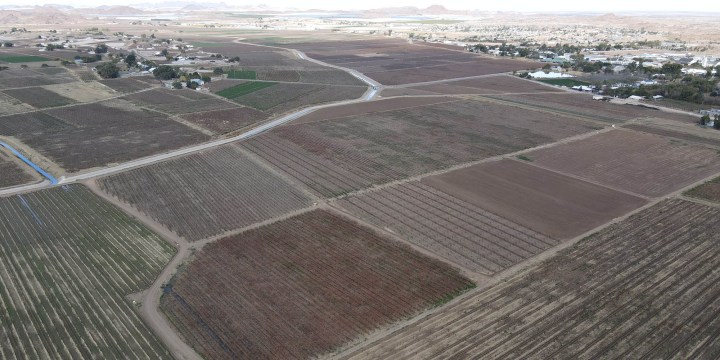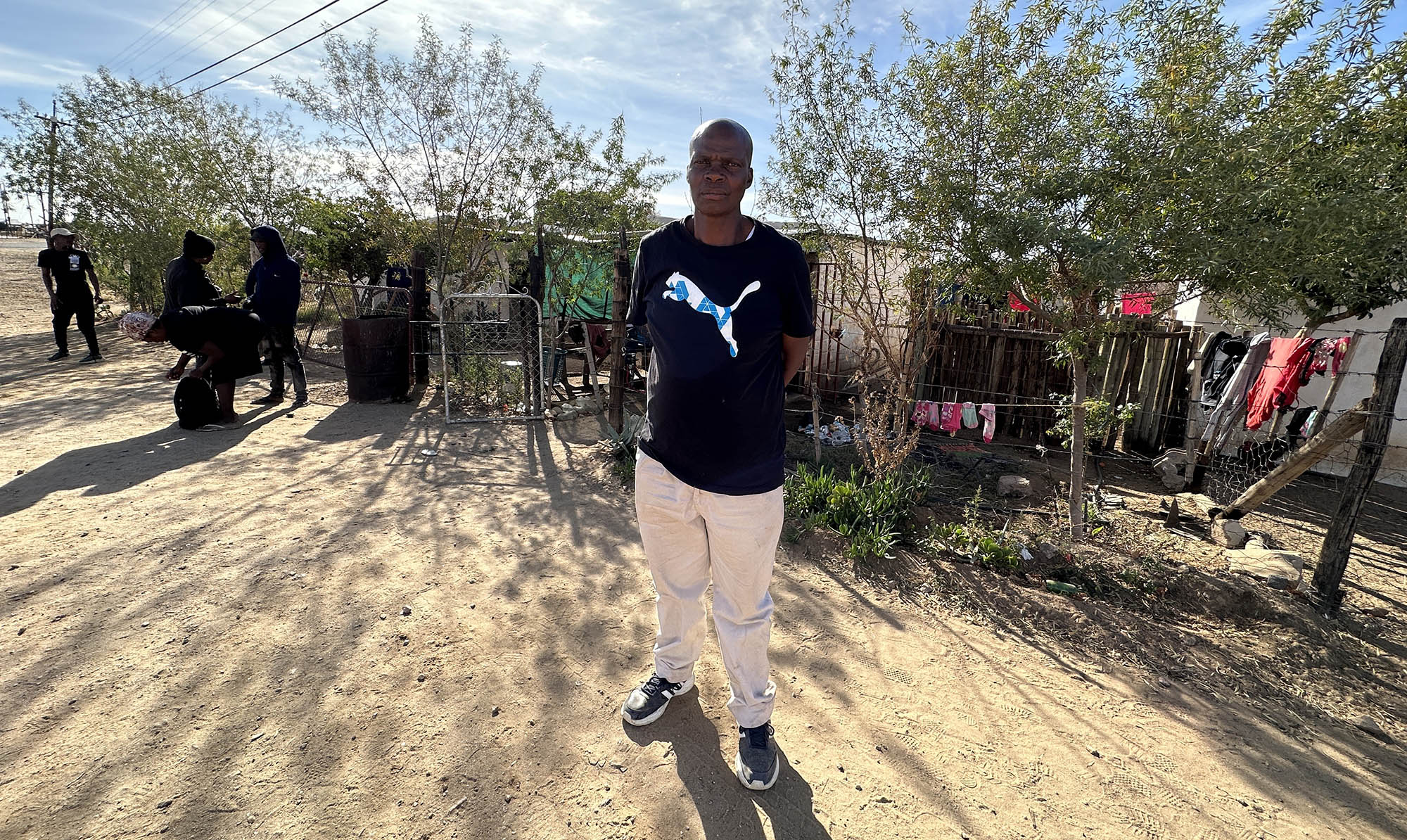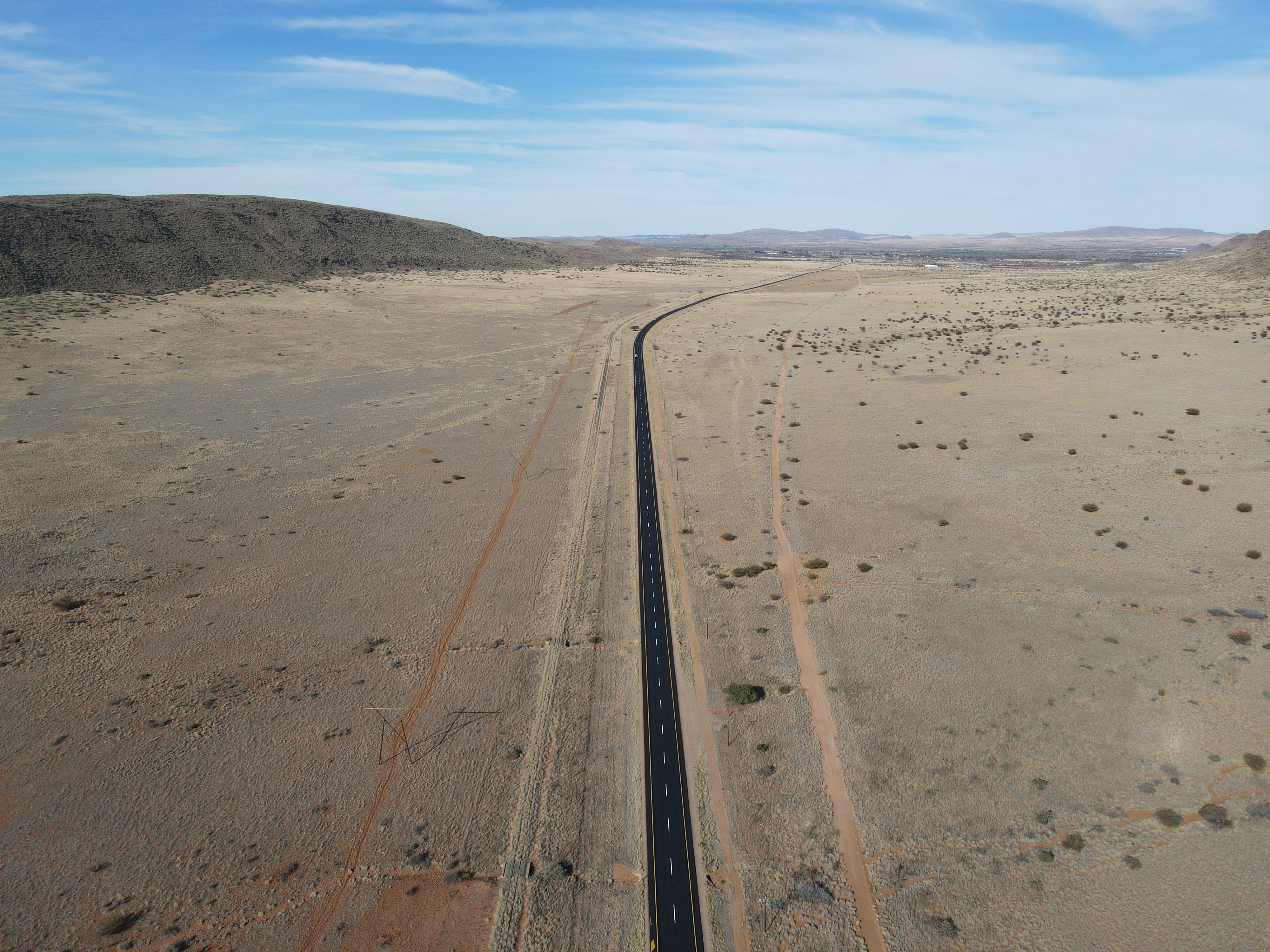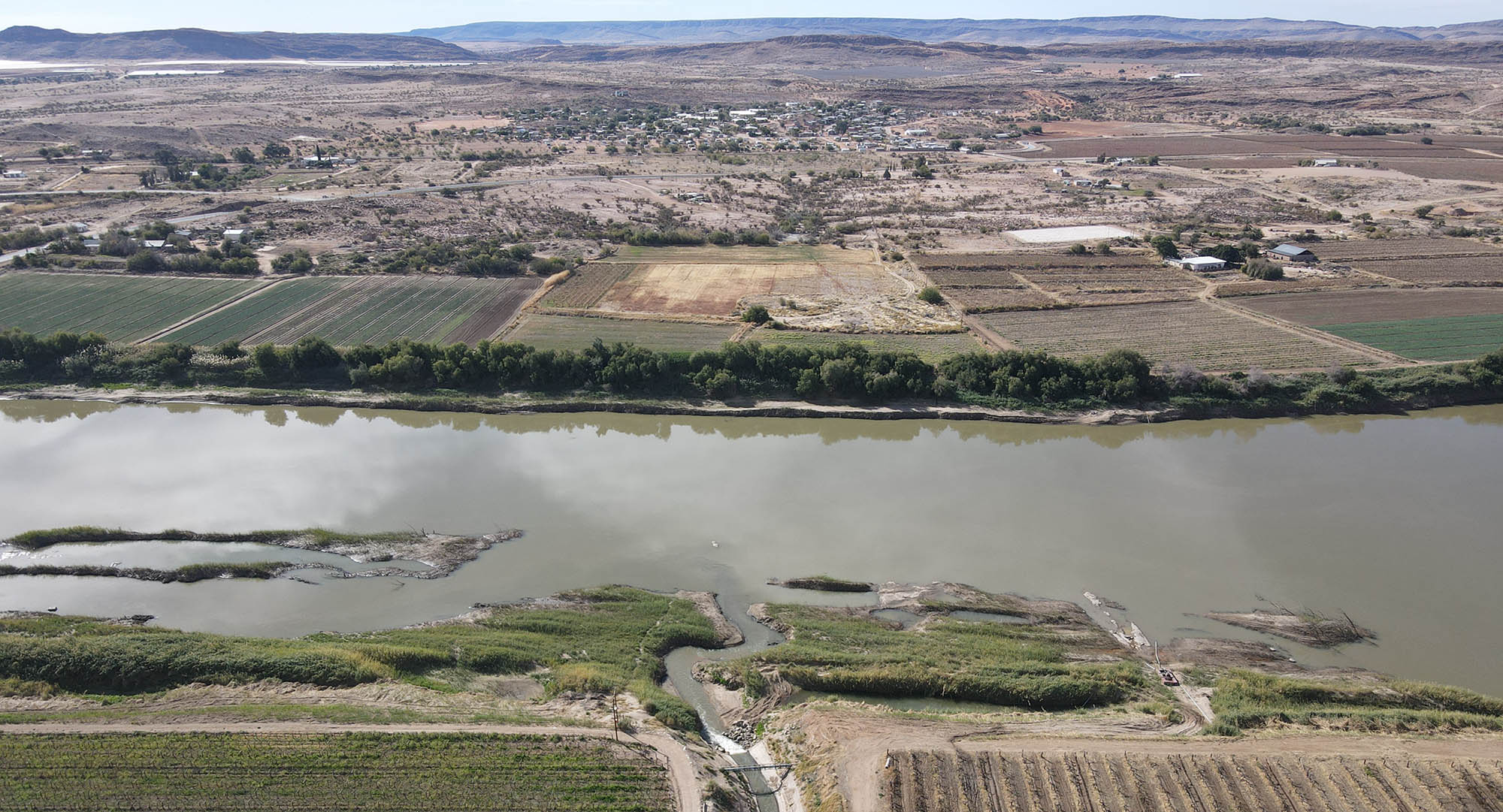FROM HARVEST TO HEATSTROKE
How rising temperatures threaten farmworkers in Northern Cape, South Africa’s sunniest province

With the El Niño event that is likely to see temperatures reach ever greater heights, scientists and experts are cautioning that the agricultural sector and its workers need to prepare for what may be successive sweltering summers.
In a grim reminder of the growing threat of climate change, a tragic scenario unfolded in the sun-scorched landscapes of the Northern Cape earlier this year when several farmworkers died in extreme heat.
This tragedy highlighted the escalating risks faced by labourers in the agricultural sector as the planet continues to warm.
Now, with the El Niño event that is likely to see temperatures reach even greater heights, scientists and experts are cautioning that the agricultural sector and its workers need to prepare for what may be successive sweltering summers.
News24 reported in January that seven farmworkers died of heatstroke in the Kakamas area in the Northern Cape. Temperatures in the region were forecast to reach well beyond 40°C.
In an interview in July, farmworkers shared their experiences with Daily Maverick.
‘It’s too hot, you see’
Moses Kallson, a worker on an orange farm in the area, said he remembered the deaths of the seven workers and that it had made news in the community.
He said his employers had taken steps at the time to ensure that he and his co-workers could manage the extreme temperatures.
Alternating between English and Afrikaans, he explained that when it’s summer and the temperatures are excessive, they find the work especially challenging.
“I’m cutting them [oranges] from the land, by hand. It’s too hot, you see, but sometimes our supervisors bring us cold water to reduce the heat.”
His friend, Aubrey Diphade, who drives a tractor on another farm in the area, said the same was true for him. He said ice-cold water was the preferred method of dealing with the extreme heat.

Aubrey Diphade outside of his home in Kakamas, Northern Cape. (Photo: Ethan van Diemen)
Former farmworker Sam Mokwena had his ideas on why some of the workers from Kakamas may have died.
“When it’s too hot… people can do the work but the fact of the matter is that when people arrive here [on the farms] they tend to forget their [chronic illness] treatments. So I think that’s one of the things that caused the deaths that you heard of… Some of the people, they don’t take their medicine, they don’t go to the clinic.
“Yes, it’s hot,” said Mokwena. “But people still work and they must drink water to stay hydrated.”
Kallson chimed in: “They give us cold water… We cannot work all day and so they [the supervisors and farmers] try to keep us hydrated in the summer…
“Sometimes when it’s hot, we have to stop working at 2pm or 3pm and then we work on the weekends to get those hours back. It’s better to do that because the summer heat is too much.”

A drought-stricken landscape leading toward Kakamas, Northern Cape. (Photo: Ethan van Diemen)

Farms on either side of the Orange River in Kakamas, Northern Cape. (Photo: Ethan van Diemen)
Agricultural and construction workers expected to be worst affected
According to an International Labour Organization report titled, Working on a warmer planet: The impact of heat stress on labour productivity and decent work: “The phenomenon of heat stress refers to heat received in excess of that which the body can tolerate without physiological impairment. Heat stress affects, above all, outdoor workers such as those engaged in agriculture and on construction sites. It is a serious problem for a large proportion of the world’s one billion agricultural workers…”
The report’s executive summary notes: “The rise in global temperatures caused by climate change will also make the phenomenon of ‘heat stress’ more common.
“Heat stress refers to heat received in excess of that which the body can tolerate without suffering physiological impairment. Such excess heat increases workers’ occupational risks and vulnerability; it can lead to heatstroke and, ultimately, even to death.
“The effects of rising average temperatures are felt differently across occupations and employment sectors. For example, jobs involving high levels of physical exertion or prolonged work outdoors are particularly affected by increasing heat levels.
“Agricultural and construction workers are expected to be the worst affected. The agricultural sector alone accounted for 83% of global working hours lost to heat stress in 1995 and is projected to account for 60% of such loss in 2030.”
The farmworkers’ experience of the heat in the Northern Cape underscores the need for immediate and comprehensive measures to address the root causes of climate change and protect vulnerable communities. Some of the risks are especially relevant considering the potential impacts of El Niño.
Read more in Daily Maverick: Here comes El Niño – and experts warn South Africa to ‘be prepared for the worst’
Dr Ramontsheng Rapolaki, an expert in Agrometeorology and Climate Modelling at the Agricultural Research Centre (ARC), told Daily Maverick that South Africans should be aware of “the potential impact of El Niño on public health, particularly for farmworkers”.
“Extreme weather events associated with El Niño, such as extreme heat events, can significantly affect people’s health, leading to heat-related illnesses, for instance. Understanding and preparing for these impacts is crucial for safeguarding the wellbeing of farmers and the broader community.”
‘Most vulnerable’
Asked about the case of the Northern Cape specifically, Rapolaki and colleagues Sarah Roffe and Lindumusa Myeni from the Agrometeorology Division, Natural Resources and Engineering at ARC, shared their thoughts.
“Farmworkers are amongst the most vulnerable populations to heat-related injuries and stresses because they spend a large proportion of their time working outdoors during daytime hours. As a result, there is often little farmworkers can do to avoid heat-related injuries, morbidities and mortalities. Despite this, it is of utmost importance that they practise as many coping and avoidance measures as possible.
“A starting action for this,” they said, “is understanding how heat stress can impact their health – it can cause and exacerbate cardiovascular diseases, strokes, severe headaches, asthma, and damage to vital organs (eg brain, kidneys, heart and lungs), and in severe cases, heat stress can lead to death.
“Moreover, they should note that elderly workers and those with underlying comorbidities are more vulnerable to heat stress occurrences.”
The researchers continued: “To avoid heat-related injuries and stress and mortalities in a South African context, agricultural workers and farmers should make use of extreme heat warnings and weather forecasts that are provided by the South African Weather Service (SAWS), as these provide timely information about upcoming extreme weather conditions.
“By regularly checking local weather forecasts and subscribing to weather alert services, they can receive real-time updates on heatwaves and extreme temperature warnings, enabling them to plan appropriately for extreme heat events.
“Although in South Africa SAWS represents the only entity providing heat-related warnings, it should be acknowledged that the Agrometeorology Division at the Agricultural Research Council has recently set up a numerical weather forecasting system, and in the future, plans are in place to develop a heat early warning system tailored to farmworkers.”
Climate crisis and Northern Cape
Asked about the implications of human-induced climate change, global warming and its implications for the Northern Cape and agricultural workers, the experts pointed out that the sixth assessment report (AR6) of the Intergovernmental Panel on Climate Change “indicates projected increases in temperatures over southern Africa, including the Northern Cape, being a region likely to experience among the largest increases in surface air temperature and the frequency and intensity of extreme temperature events.
“These projected temperature changes are, however, assessed at global and regional levels using Global Climate Model (GCM) projections.”
Read more in Daily Maverick: AR6 synthesis report: Warming above 1.5℃ is likely in the near term unless the world acts now, says the UN
Despite the current limitations of GCM projections, they say that some inferences can be made in general about the impact of climate change on the Northern Cape and the agricultural sector beyond the immediate effect on human health.
“Anthropogenic climate change poses multifaceted challenges for agricultural regions in the Northern Cape. Increasing temperatures, changing precipitation patterns, and water scarcity currently threaten farming operations and livelihoods, and in the future, it will continue to do so.
“Consequences could range from reduced agricultural productivity to shifts in crop suitability and even livestock suitability.”
‘Have a plan’
In a separate conversation with Daily Maverick, Dr Johan Malherbe – also with the Agricultural Research Centre – gave some practical advice on how farmers and farmworkers can best prepare for extreme heat.
“Be aware of the expected and developing conditions, and have a plan ready for when it’s too hot. Don’t ignore the fact that certain conditions can be detrimental to human health if they are exposed and if they are exerting themselves in those conditions.”
While not directly attributed to human-induced climate change, the tragic deaths of the farmworkers earlier this year serve as a sombre wake-up call for governments, industries and individuals alike, underscoring the urgency of transitioning to sustainable practices, reducing greenhouse gas emissions and implementing robust policies to safeguard vulnerable populations.
Failure to take decisive action now could lead to an increasingly perilous future, where the most marginalised bear the brunt of a changing climate. DM






















 Become an Insider
Become an Insider
A shorter report would be more effective. 750 words. Max.
Agreed. My eyes had crossed over and never made it to the end
I know scale may be an issue but I have a small allotment sized holding in the karoo and in summer I start working with my staff at 5 am as its light enough by then. We work through “lunch hour” so they have done a full 8 hour (7+1 lunch) by 12 but if its very hot we cut at 10 or 11 and do other stuff or leave. This really works and even though 5 am is a pain, everone is happy to have the rest of the day to themselves.
I think to expect people to work in that heat, and usually by 2 pm its deathly hot, is not right. There should be better consideration.